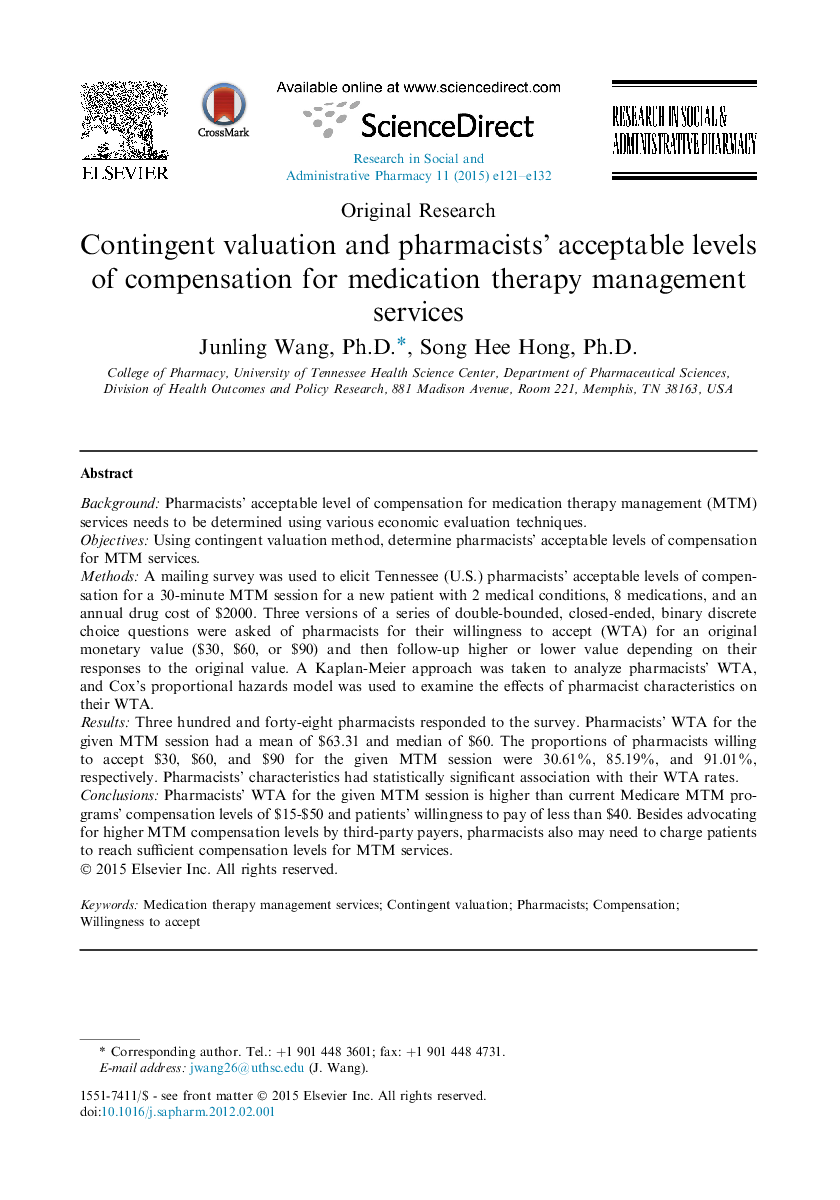| Article ID | Journal | Published Year | Pages | File Type |
|---|---|---|---|---|
| 2508325 | Research in Social and Administrative Pharmacy | 2015 | 12 Pages |
BackgroundPharmacists’ acceptable level of compensation for medication therapy management (MTM) services needs to be determined using various economic evaluation techniques.ObjectivesUsing contingent valuation method, determine pharmacists’ acceptable levels of compensation for MTM services.MethodsA mailing survey was used to elicit Tennessee (U.S.) pharmacists’ acceptable levels of compensation for a 30-minute MTM session for a new patient with 2 medical conditions, 8 medications, and an annual drug cost of $2000. Three versions of a series of double-bounded, closed-ended, binary discrete choice questions were asked of pharmacists for their willingness to accept (WTA) for an original monetary value ($30, $60, or $90) and then follow-up higher or lower value depending on their responses to the original value. A Kaplan-Meier approach was taken to analyze pharmacists’ WTA, and Cox’s proportional hazards model was used to examine the effects of pharmacist characteristics on their WTA.ResultsThree hundred and forty-eight pharmacists responded to the survey. Pharmacists’ WTA for the given MTM session had a mean of $63.31 and median of $60. The proportions of pharmacists willing to accept $30, $60, and $90 for the given MTM session were 30.61%, 85.19%, and 91.01%, respectively. Pharmacists’ characteristics had statistically significant association with their WTA rates.ConclusionsPharmacists’ WTA for the given MTM session is higher than current Medicare MTM programs’ compensation levels of $15-$50 and patients’ willingness to pay of less than $40. Besides advocating for higher MTM compensation levels by third-party payers, pharmacists also may need to charge patients to reach sufficient compensation levels for MTM services.
